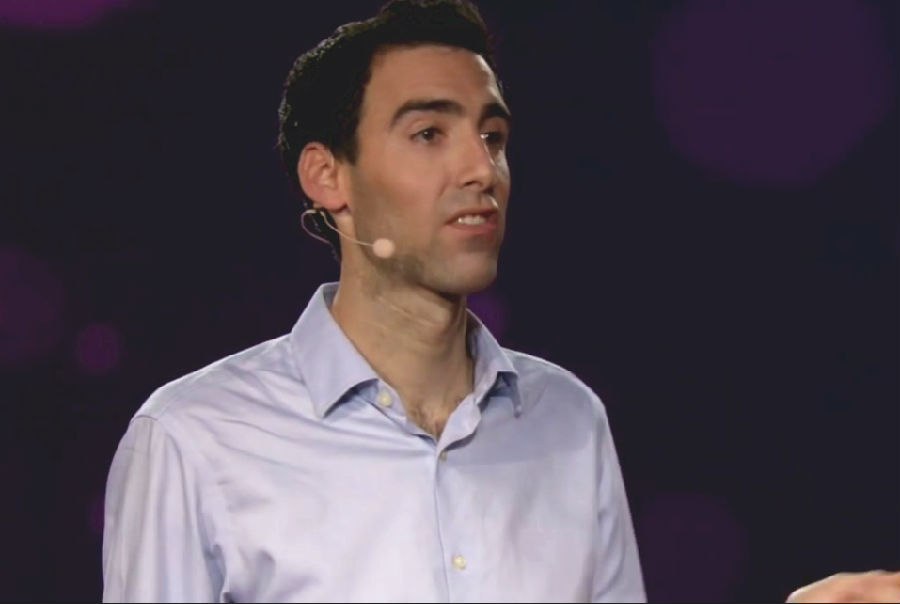(单词翻译:单击)
听力文本
In 2012, Kaggle challenged its community to build an algorithm that could grade high-school essays.
2012年,Kaggle给当地学校出了个难题,设计一个算法来评判高中作文。
The winning algorithms were able to match the grades given by human teachers.
获胜的算法给出的分数居然和真正老师给出的分数相符。
Last year, we issued an even more difficult challenge.
去年,我们出了一道更难的题。
Can you take images of the eye and diagnose an eye disease called diabetic retinopathy?
你能从拍摄出的眼睛图像中诊断出糖尿病性视网膜病变吗?
Again, the winning algorithms were able to match the diagnoses given by human ophthalmologists.
再一次,获胜的演算法给出的诊断和眼科医生的诊断相符。
Now, given the right data, machines are going to outperform humans at tasks like this.
类似于这样的任务,只要给定正确的数据,机器将完全超越人类。

A teacher might read 10,000 essays over a 40-year career.
一位老师在40年的职业生涯中可能审阅一万篇作文。
An ophthalmologist might see 50,000 eyes.
一名眼科医生大概可以检查5万只眼睛。
A machine can read millions of essays or see millions of eyes within minutes.
但在短短几分钟之内,机器可以审阅百万篇文章或检查数百万只眼睛。
We have no chance of competing against machines on frequent, high-volume tasks.
对于频繁、大批量的任务,我们无法与机器抗衡。
But there are things we can do that machines can't do.
但有些事情机器却无能为力。
Where machines have made very little progress is in tackling novel situations.
机器在解决新情况方面进展甚微。
They can't handle things they haven't seen many times before.
它们还不能处理未曾反复接触的事情。
The fundamental limitations of machine learning is that it needs to learn from large volumes of past data.
机器学习致命的局限性在于它需要从大量已知的数据中总结经验。
Now, humans don't.
人类则不然。
We have the ability to connect seemingly disparate threads to solve problems we've never seen before.
我们有一种能把看似毫不相关的事物联系起来的能力,从而解决从未见过的问题
Percy Spencer was a physicist working on radar during World War II,
Percy Spencer是一个物理学家,在二战期间从事雷达的研究工作,
when he noticed the magnetron was melting his chocolate bar.
他注意到磁控管融化了他的巧克力。
He was able to connect his understanding of electromagnetic radiation
他从对电磁辐射的理解
with his knowledge of cooking in order to invent -- any guesses? -- the microwave oven.
联想到烹饪,因此发明了——猜猜是什么?微波炉。
演讲介绍
2013年牛津大学研究人员做了一项关于未来就业的研究,得出结论:将近一半的工作都有被机器自动化取代的危险。而机器学习是主要原因,它是人工智能最强大的分支。Goldbloom的公司专攻尖端机器学习,他们召集专家寻找一个重要答案:哪些工作将受到威胁?


